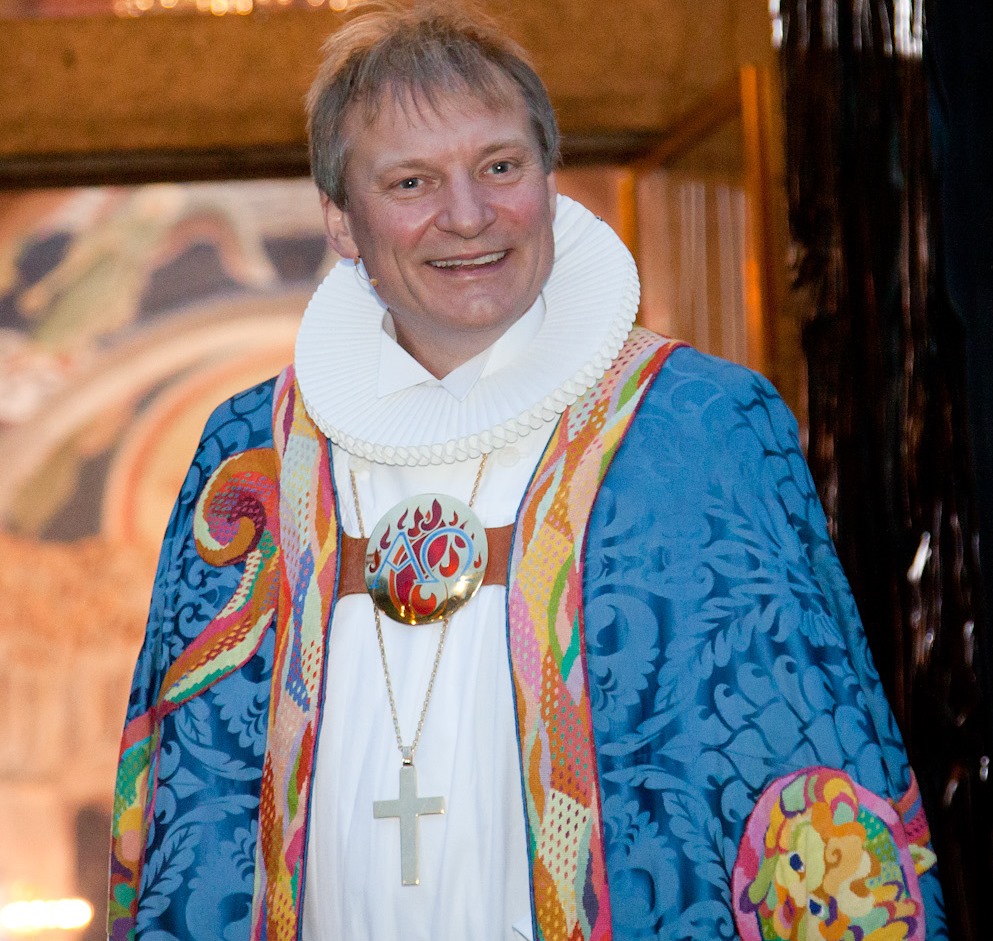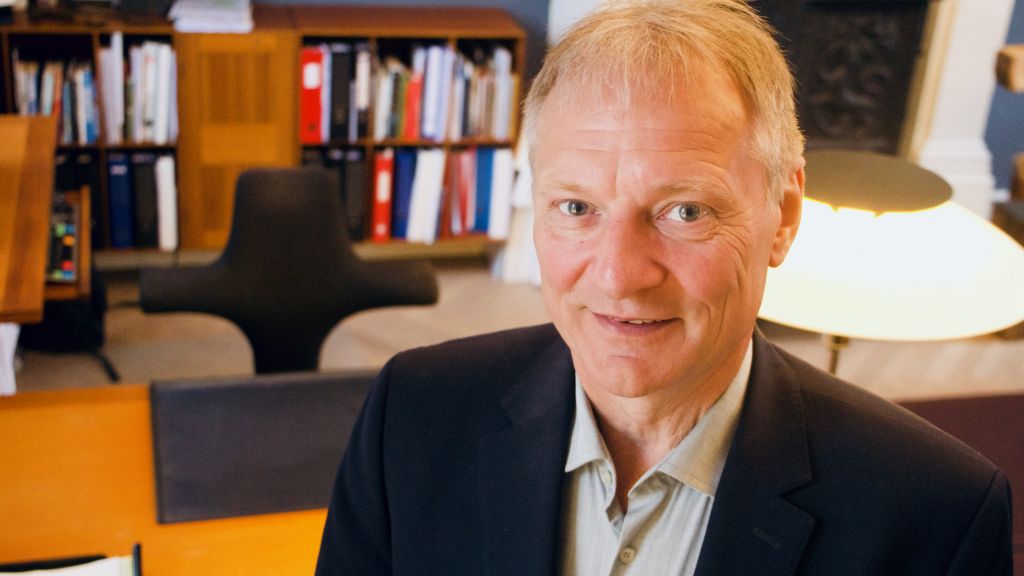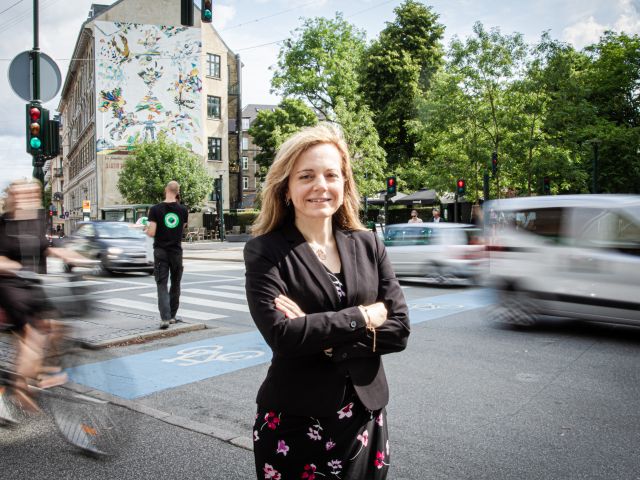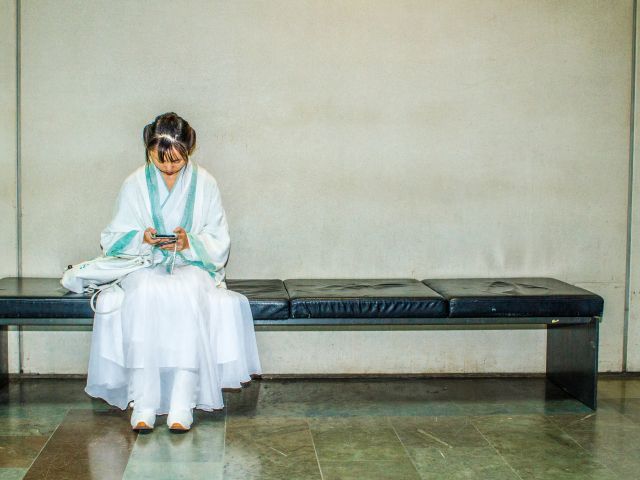Bishop Henrik Stubkjær needed leadership training and has just submitted his master’s thesis at CBS

As a bishop, Henrik Stubkjær has clerical responsibility for 200 pastors, approximately 1,300 parochial church council members, and 230 churches in the Diocese of Viborg. Before accepting the office of bishop, he sought theoretical knowledge to expand his leadership toolbox, and found what he was looking for on the school bench at CBS.
“The deadline for submitting the master’s thesis is today, and I have just turned it in,” announces the happy Bishop of Viborg, Henrik Stubkjær, by telephone from his garden complete with birdsong in the background when CBS WIRE calls him up.
He has just finished studying at CBS, and today, on the threshold of being able to add Master in Public Governance to his curriculum vitae, Henrik Stubkjær can look back on his studies as a time full of eye-opening experiences.
One of his most rewarding realizations on the path to obtaining his master’s degree was that the Evangelical Lutheran Church in Denmark needs to break down the barriers to surrounding society by communicating and collaborating in new ways and more comprehensively than formerly.
In other words, he found that if the church can establish more leadership networks with institutions and actors such as politicians, schools and councils, the church will gain more legitimacy in the society – and legitimacy is exactly what the church needs, according to the bishop.
“The church is under pressure”
Once, the Christian church carried extensive authority. Now, those days are gone. At least that is what the Bishop of Viborg, Henrik Stubkjær, who is soon to hold a Master of Public Governance, believes.
His recently submitted master’s thesis explores how to define the management spaces of Danish bishops. And his encounters with different leadership and network theories while writing his thesis changed his original approach to this subject.
For instance, he realized that the old-fashioned perceptions of clerical church members commanding authority no longer apply.
“The church is under pressure. Pressure from a need for legitimacy. The authority possessed by the church in times gone by no longer exists. Therefore, as a church, we must argue for our legitimacy in order to obtain it,” Henrik Stubkjær says adding:
“And in order to gain legitimacy for the church as a whole, I really think we need to replace our ancient communication forms with a whole new language that makes us more capable of communicating with the outside world.
An eye-opening experience
Creating new ways of communicating within a thousand-year-old institution such as the Christian church to regain legitimacy in surrounding society may sound rather difficult.

However, when Henrik Stubkjær stumbled on the field of network theory, which focuses on development by communication and collaborations between participants in different networks, he suddenly became aware that the mission can actually be accomplished.
For instance, through encouraging more collaboration between parishioners from dioceses throughout Denmark as well as building bridges to networks in the public sector outside the church.
“Within the realm of the church, for many years, the different parishes were more or less run separately. But as time passed, we have become more interdependent, and now we collaborate more than ever,” Henrik Stubkjær says and continues:
“Meanwhile, the church has slowly realized that it must form new networks and collaborations with schools, unions, local authorities and the like in order to become a much more entitled part of society.
“Because in modern society, networks are crucial if you want to gain trust and legitimacy. That’s exactly what network theory is all about and discovering that was quite an eye-opener for me!”
... discovering that was quite an eye-opener for me
Henrik Stubkjær saw the light when he replaced his Bishop’s staff with network theory textbooks. And while becoming enlightened, he also realized that as a chief pastor and overseer of one out of ten dioceses in Denmark, a break with the old hierarchical perception of the church management is needed to accomplish his mission.
“We need to collaborate more on all levels if we want to inspire trust from the outside world. Therefore, a top-down hierarchical management style doesn’t work. Instead, we must build bridges and work together so that we can become a legitimate and implemented part of the big network that is Danish society,” he says.
Although it may sound as if Henrik Stubkjær’s discoveries and ideas originated solely from reading thousands of pages about network theory, the foundation for his aspirations was laid even before he became a bishop.
Challenging leadership styles in the name of God
Henrik Stubkjær’s studies constituted a long journey. It all began years before he became the chief pastor and overseer of the Diocese of Viborg – more specifically in 2012, when he worked as the general secretary of the Danish NGO, DanChurchAid.
At that time, the NGO had 700 employees spread across the globe, approximately 5,000 volunteers and a revenue of over half a billion a year. And being the head of such a major organization was a demanding and challenging job.
According to Henrik Stubkjær, one of his most challenging tasks as general secretary was to continuously ensure the fulfillment of DanChurchAid’s legitimacy as a humanitarian and value-driven organization, which had to be achieved effectively.
And this was exactly what spurred the general secretary to return to studying and enroll on a master’s program at CBS.
“Needless to say, it demands some degree of leadership skill to legitimize an organization of that magnitude. Therefore, I thought it would be extremely relevant for me to acquire some theoretical knowledge and leadership training by studying for a Master of Public Governance,” Henrik Stubkjær says.
Then, after finishing his studies, when he was poised to begin writing his master’s thesis, he became Bishop of Viborg.
And again found himself in a position of supreme authority – however this time with clerical responsibility for about 200 pastors in the diocese and approximately 1,300 parochial church council members covering 230 churches.
Being given this managerial responsibility in the name of God demanded some time away from writing his master’s thesis. But from early on when Henrik Stubkjær came into office, he spotted some correlations between the practices of the church and the theories he had studied.
Mainly he noticed that the Christian church lacked an updated, concrete, defined leadership structure that suits the modern world. And therefore, he took a leave from his holy duties to write a thesis on the matter.
“I was granted a leave of absence for three months to write my thesis. And it was a blessing, so to speak, to be allowed to devote my time to reading and writing about how to define the management spaces of Danish bishops,” he says.
Presentation for bishops
Back in his garden in Viborg, after submitting his master thesis, Henrik Stubkjær looks back on his time at CBS, which has been an enriching experience on both a professional and personal level.
“While studying, I met a lot of fantastic and interesting people. Both fellow students and people I have interviewed for my thesis, with whom I would like to keep in touch,” he says and continues:
“Some of them are local government workers while others work in the hospital sector, and when I talk to them, I realize how many similarities there are between their management forms and ours in the church. And I firmly believe we can learn a lot from each other and possibly create new networks.”
Before he can add a Master of Public Governance to his CV, however, Henrik Stubkjær needs to defend his thesis in June. But the bishop already knows what he will do first after getting his diploma.
“When I graduate, I think the other bishops will be interested to hear about what I’ve learned. So I will prepare a presentation for them about the conclusions from my studies. And hopefully, they will find them just as interesting as I do,” he says.






































































































































Comments